Brooklyn-based Grado Labs has been in business for 64 years, manufacturing moving-iron phono cartridges, headphones, and, for a while, even a unipivot tonearm with a wooden arm wand, as well as the sophisticated, S-shaped Signature Laboratory Standard arm.

The company’s founder, Joseph Grado, who well deserves the appellation “legendary,” died in 2015, at the age of 90. He began as a watch builder at Tiffany & Company, and started making phono cartridges in 1953, as the hi-fi boom took off. He retired in 1990 and sold Grado Labs—still located in the same Brooklyn building where he’d begun in 1953—to his nephew John Grado Jr., who by then had put in more than a decade at Uncle Joe’s company, pretty much running it after Joe had returned to what he liked best: inventing things.
At the time, Grado Labs manufactured some 10,000 cartridges annually. It’s not as if Joe’s new invention—three models of costly, handmade headphones—was an attempt to diversify because the cartridge business was bad. Joe also invented the highly regarded, limited-edition Grado HMP-1 omnidirectional microphone, a favorite of veteran recording engineer Peter McGrath, who is currently director of sales for Wilson Audio Specialties. The headphones, hand-built by Joe and John, were an immediate success among audiophiles and recording professionals. Grado Labs’ move into headphones has proved prescient, given the subsequent boom in that market, and with the vinyl resurgence, Grado today is poised for continued growth in both arenas, even as John Grado reaches retirement age (though it’s doubtful he’ll retire anytime soon). There are more Grados in the pipe line. Recently, it was announced that John’s sons, Jonathan and Matthew, have joined the company.
The Core Business Expands
Diese Geschichte stammt aus der December 2017-Ausgabe von Stereophile.
Starten Sie Ihre 7-tägige kostenlose Testversion von Magzter GOLD, um auf Tausende kuratierte Premium-Storys sowie über 8.000 Zeitschriften und Zeitungen zuzugreifen.
Bereits Abonnent ? Anmelden
Diese Geschichte stammt aus der December 2017-Ausgabe von Stereophile.
Starten Sie Ihre 7-tägige kostenlose Testversion von Magzter GOLD, um auf Tausende kuratierte Premium-Storys sowie über 8.000 Zeitschriften und Zeitungen zuzugreifen.
Bereits Abonnent? Anmelden

Michael Des Barres and the Art of Aural Obsession
Listening to music inspires us to take action. Upon hearing an I.E.-Instant Earworm-we must then determine the best way we can go about listening to it again (and again) at our convenience.

PLANET OF SOUND
BLACK FRANCIS ON HARNESSING THAT MAGIC PIXIES DUST

T+A R 2500 R STREAMING RECEIVER PHONO MODULE
In my review of the T+A R 2500 R receiver (August 2024 issue), I covered many of its features and took as deep a dive as time and column inches allowed.
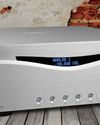
Audia Flight FLS10
The dogma of separates has long reigned supreme among audiophiles: If you're serious about sound quality, you're supposed to need a dedicated preamp and power amp.

Totem Acoustic Element Fire V2
Totem Acoustic was founded in 1987, in Montreal, Canada, by a former high school math teacher named Vince Bruzzese. The company's first product, the Model 1 loudspeaker,' impressed me so much I bought a pair.
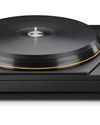
MoFi Electronics MasterDeck
Get two mouthy jazz drummers in a room and watch the sparks fly. Talented turntable designer Allen Perkins, the brain behind Spiral Groove,2 Immedia's RPM turntables,³ and various SOTA models, is first and foremost a jazz drummer.
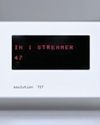
Soulution 727
AImost 14 years have passed since a review of a Soulution product appeared in the pages of Stereophile.\"
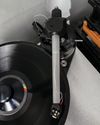
The Spin Doctor checks out the Kuzma Safir 9, a superarm from Slovenia.
The British audio scene from the late 1970s through the mid-1980s was pretty strange. Audio as a hobby was a big deal, with widespread appeal to a much younger crowd than today. Audiophiles were guided by a flurry of what my friends called \"hi-fi pornos,\" audio magazines that filled the racks at the newsagents.

Alex goes to Japan
Arriving in Japan from the United States is like being turned upside down. This condition lasts for much of the first week. When I visited in November, the time difference between Tokyo and New York was 14 hours. \"The floating world\" is a term for the pleasure-addled urban culture of Edo-period Japan, but it's also an apt description for the twilit and not-entirely-unpleasant weirdness of first arriving in Tokyo. Everything seems slightly unreal.
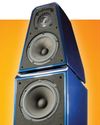
Wilson Audio Specialties The WATT/Puppy
Since the original WATT/Puppy concept kicked off in the late 1980s,' there has been a 40-year evolution leading to the latest version reviewed here.